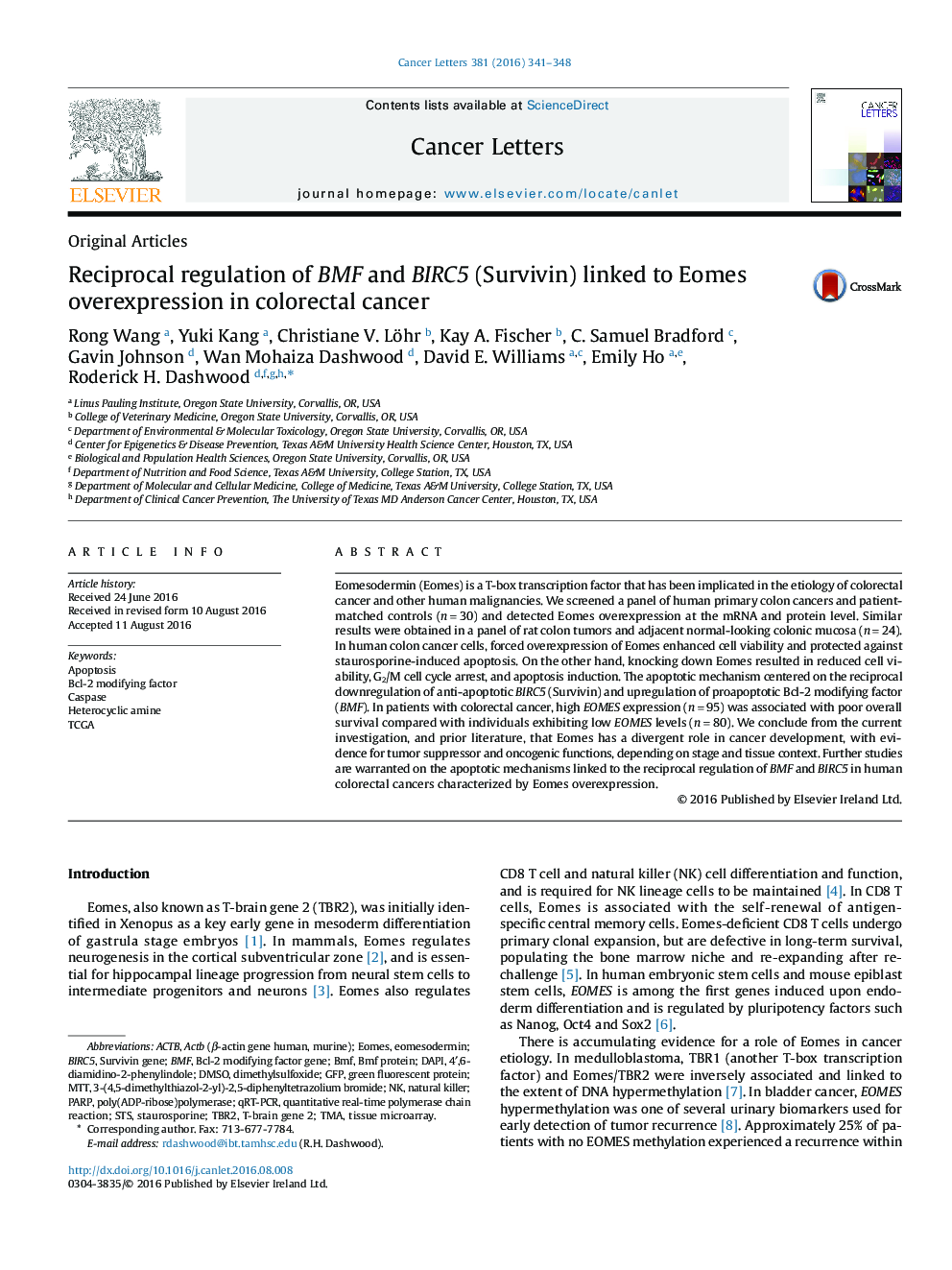| Article ID | Journal | Published Year | Pages | File Type |
|---|---|---|---|---|
| 2112229 | Cancer Letters | 2016 | 8 Pages |
•Eomes was overexpressed in human primary colon cancers and in tumors from a rat preclinical model.•In colon cancer cells, Eomes enhanced cell viability and protected against apoptosis, whereas knockdown acted vice versa.•The apoptotic mechanism centered on the reciprocal regulation of BIRC5 (Survivin) and BMF.•From The Cancer Genome Atlas, high EOMES expression was associated with poor survival in colorectal cancer patients.•Further studies are warranted on the mechanisms of apoptosis dysregulation by Eomes overexpression in colorectal cancer.
Eomesodermin (Eomes) is a T-box transcription factor that has been implicated in the etiology of colorectal cancer and other human malignancies. We screened a panel of human primary colon cancers and patient-matched controls (n = 30) and detected Eomes overexpression at the mRNA and protein level. Similar results were obtained in a panel of rat colon tumors and adjacent normal-looking colonic mucosa (n = 24). In human colon cancer cells, forced overexpression of Eomes enhanced cell viability and protected against staurosporine-induced apoptosis. On the other hand, knocking down Eomes resulted in reduced cell viability, G2/M cell cycle arrest, and apoptosis induction. The apoptotic mechanism centered on the reciprocal downregulation of anti-apoptotic BIRC5 (Survivin) and upregulation of proapoptotic Bcl-2 modifying factor (BMF). In patients with colorectal cancer, high EOMES expression (n = 95) was associated with poor overall survival compared with individuals exhibiting low EOMES levels (n = 80). We conclude from the current investigation, and prior literature, that Eomes has a divergent role in cancer development, with evidence for tumor suppressor and oncogenic functions, depending on stage and tissue context. Further studies are warranted on the apoptotic mechanisms linked to the reciprocal regulation of BMF and BIRC5 in human colorectal cancers characterized by Eomes overexpression.
